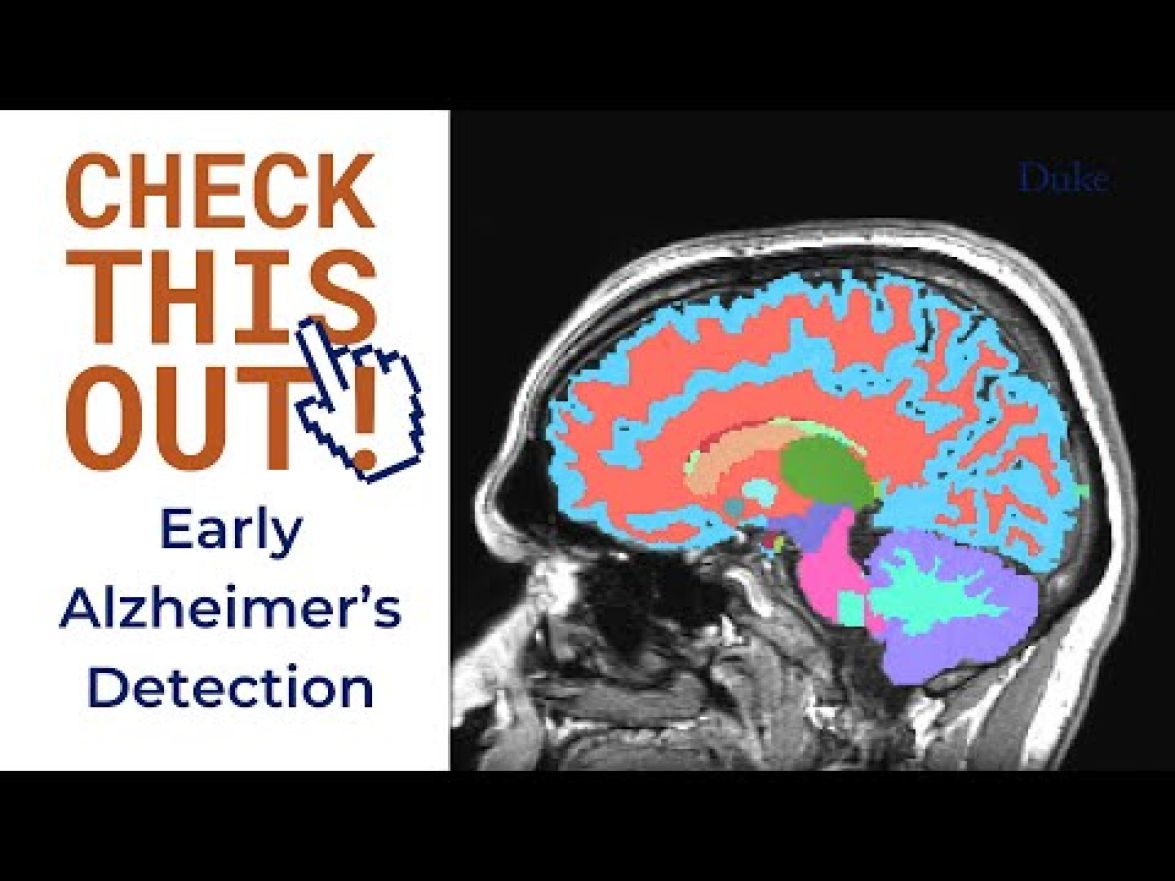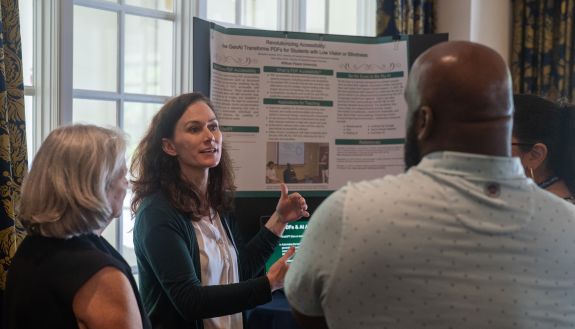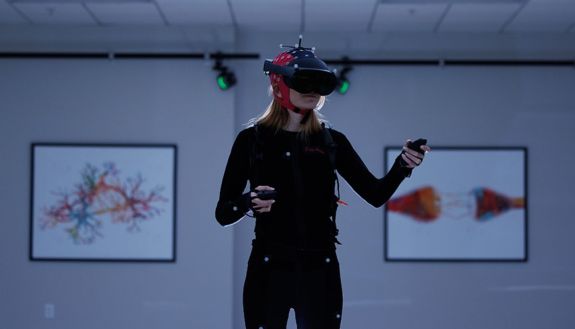

A hamster-sized primate from Madagascar, the fat-tailed dwarf lemur can turn back the aging clock during its annual hibernation season, according to markers of cellular aging called telomeres. Credit: David Haring, Duke Lemur Center
Latest
-

July 1, 2025
A Duke Startup is Helping Researchers Work Smarter
Read on Duke Clinical Research Institute
-

-
 The small indentations in one of the paver stones in a West Campus walkway may be prehistoric footprints made by one of the earliest organisms to walk on four legs.
The small indentations in one of the paver stones in a West Campus walkway may be prehistoric footprints made by one of the earliest organisms to walk on four legs. -
 Microplastics can be found in the food we eat, the water we drink, the clothing we wear, the oceans in which we swim and even the air we breathe.
Microplastics can be found in the food we eat, the water we drink, the clothing we wear, the oceans in which we swim and even the air we breathe. -

-
 The summit included a student panel, a teaching showcase of more than 20 demos on how to use AI in the classroom, and two interactive workshops on using AI as task-oriented assistants.
The summit included a student panel, a teaching showcase of more than 20 demos on how to use AI in the classroom, and two interactive workshops on using AI as task-oriented assistants.
-

-

June 12, 2025
Where High-Tech and Neuroscience Meet to Provide Relief for PTSD
Read on School of Medicine
-
 2025 Faculty Scholars, clockwise from left: Jorge Mato Frontela, Fletch Rydell, Miguel Cohen Suarez and Trisha Santanam
2025 Faculty Scholars, clockwise from left: Jorge Mato Frontela, Fletch Rydell, Miguel Cohen Suarez and Trisha Santanam -

May 29, 2025
Physics Emeriti Professor Lawrence Evans Dies at Age 92
Read on Trinity College of Arts and Sciences
-
 The new initiative aims to contribute to a global conversation about the new horizons that AI can open up for us, and how to keep it from exacerbating some of our greatest challenges.
The new initiative aims to contribute to a global conversation about the new horizons that AI can open up for us, and how to keep it from exacerbating some of our greatest challenges. -

May 20, 2025
Student Reflects on Her Experience as a Woman in Engineering
Read on Pratt School of Engineering
-

-
 Dr. Matthew Luedke, a neurologist at Duke, uses 2HELPS2B, an AI tool used in hospitals to quickly predict the likelihood of a person having a seizure. “It is very useful when you’re seeing a patient in the hospital who may have some subtle seizure activity in order to gauge how to appropriately monitor and treat them,” said Luedke.
Dr. Matthew Luedke, a neurologist at Duke, uses 2HELPS2B, an AI tool used in hospitals to quickly predict the likelihood of a person having a seizure. “It is very useful when you’re seeing a patient in the hospital who may have some subtle seizure activity in order to gauge how to appropriately monitor and treat them,” said Luedke. -
 New evidence from brain imaging research shows that "aha! moments" aren’t just satisfying — they actually reshape how your brain represents information, and help sear it into memory.
New evidence from brain imaging research shows that "aha! moments" aren’t just satisfying — they actually reshape how your brain represents information, and help sear it into memory. -
 Chloe Nguyen and Neil Upreti are the 13th and 14th Duke students to receive the scholarship.
Chloe Nguyen and Neil Upreti are the 13th and 14th Duke students to receive the scholarship.